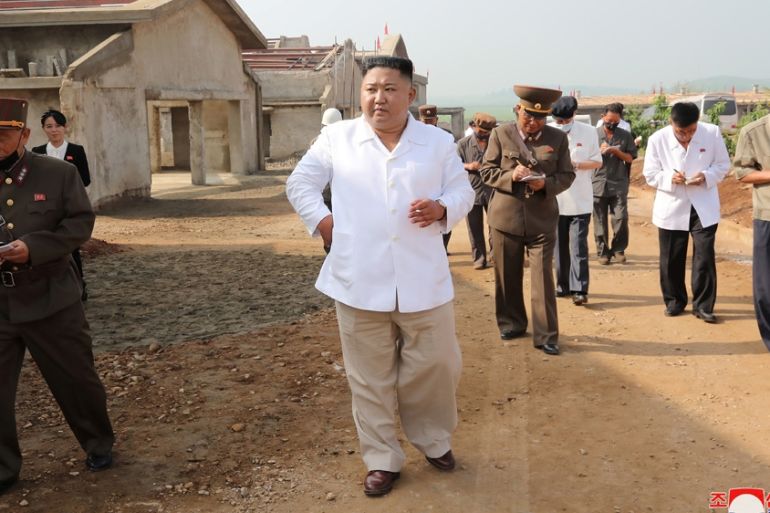North Korea’s economy grew in 2019 – first time in 3 years
South Korea’s central bank says agriculture, construction and fishing boosted growth despite impact of sanctions.

North Korea’s economy grew for the first time in three years in 2019 as better weather conditions boosted crops, but sanctions imposed to stop its nuclear ambitions kept manufacturing weak, according to South Korea‘s central bank.
The secretive country’s gross domestic product (GDP) last year rose 0.4 percent compared with the previous year when the economy suffered the biggest contraction in 21 years as a result of drought and sanctions, the Bank of Korea (BOK) said on Friday.
Keep reading
list of 4 itemsBoeing hit with 32 whistleblower claims, as dead worker’s case reviewed
US imposes new sanctions on Iran after attack on Israel
A flash flood and a quiet sale highlight India’s Sikkim’s hydro problems
The North does not publish economic data of its own, and the South Korean central bank numbers are considered the most authoritative.
North Korea has been under United Nations sanctions since 2006 over its ballistic missile and nuclear programmes and the UN Security Council has tightened measures in recent years.
“The sanctions have not become any tougher since 2017-end and weather conditions have been more favourable, which helped output from the agriculture sector to improve,” a BOK official said.
Construction also turned positive last year, the BOK said, as did the forestry and fishing sector, while the contraction in mining and manufacturing narrowed.
The North is banned from exporting coal, iron and lead as a result of sanctions imposed in 2017.
Trade in textiles, once a key export, is banned in both directions.

Clocks, wigs
Nonetheless, total exports rose by 14.4 percent to $280m in 2019, according to the BOK, with the biggest increases in clocks and watches, along with footwear, hats and wigs.
“Even so, its too early to say [North Korea‘s] economy is in a recovery” as its trade volume in recent years is half the levels seen before the international sanctions kicked in, the bank noted.
Leader Kim Jong Un has repeatedly promised to raise living standards and has quietly sought to liberalise the country’s long-moribund economy to allow market forces to play a greater role. Since taking power in 2011, he has often been pictured visiting construction sites and factories.
Since 1991, the BOK has used figures from intelligence agencies and the unification ministry on everything from the size of rice paddy crops, water flows at dams to traffic near the border to make estimates.
The BOK official said North Korea‘s trade was expected to worsen significantly this year as the coronavirus outbreak would have curbed shipments to China, which accounts for more than 90 percent of North Korea‘s total trade.
|
|
Despite Kim’s proclaimed commitment to liberalising the economy, he continues to follow the ideological path of Kim Il Sung, his grandfather, and the country’s founder.
The North remains deeply impoverished, with about 40 percent of the population in need of food aid according to UN estimates.
The BOK said the North’s economy was less than one-50th of the size of the South’s, which is the 12th biggest in the world.